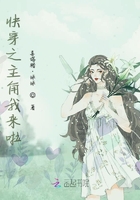It was a fair morning in June: the sky was a bright, deep, lovely, speckless blue: the flowers and bushes poured perfume, and sprinkled song upon the balmy air.On such a day, so calm, so warm, so bright, so scented, so tuneful, to live and to be young is to be happy.With gentle hand it wipes all other days out of the memory;it smiles, it smells, it sings, and clouds and rain and biting wind seem as far off and impossible as grief and trouble.
Camille and Josephine had stolen out, and strolled lazily up and down close under the house, drinking the sweet air, fragrant with perfume and melody; the blue sky, and love.
Rose was in the house.She had missed them; but she thought they must be near; for they seldom took long walks early in the day.
Meeting Jacintha on the landing of the great staircase, she asked her where her sister was.
"Madame Raynal is gone for a walk.She has taken the colonel with her.You know she always takes the colonel out with her now.""That will do.You can finish your work."Jacintha went into Camille's room.
Rose, who had looked as grave as a judge while Jacintha was present, bubbled into laughter.She even repeated Jacintha's words aloud, and chuckled over them."You know she always takes the colonel out with her now--ha, ha, ha!""Rose!" sighed a distant voice.
She looked round, and saw the baroness at some distance in the corridor, coming slowly towards her, with eyes bent gloomily on the ground.Rose composed her features into a settled gravity, and went to meet her.
"I wish to speak with you," said the baroness; "let us sit down; it is cool here."Rose ran and brought a seat without a back, but well stuffed, and set it against the wall.The old lady sat down and leaned back, and looked at Rose in silence a good while; then she said,--"There is room for you; sit down, for I want to speak seriously to you.""Yes, mamma; what is it?"
"Turn a little round, and let me see your face."Rose complied; and began to feel a little uneasy.
"Perhaps you can guess what I am going to say to you?""I have no idea."
"Well, I am going to put a question to you.""With all my heart, dear mamma."
"I invite you to explain to me the most singular, the most unaccountable thing that ever fell under my notice.Will you do this for your mother?""O mamma! of course I will do anything to please you that I can;but, indeed, I don't know what you mean.""I am going to tell you."
The old lady paused.The young one, naturally enough, felt a chill of vague anxiety strike across her frame.
"Rose," said the old lady, speaking very gently but firmly, and leaning in a peculiar way on her words, while her eye worked like an ice gimlet on her daughter's face, "a little while ago, when my poor Raynal--our benefactor--was alive--and I was happy--you all chilled my happiness by your gloom: the whole house seemed a house of mourning--tell me now why was this.""Mamma!" said Rose, after a moment's hesitation, "we could hardly be gay.Sickness in the house! And if Colonel Raynal was alive, still he was absent, and in danger.""Oh! then it was out of regard for him we were all dispirited?""Why, I suppose so," said Rose, stoutly; but then colored high at her own want of candor.However, she congratulated herself that her mother's suspicion was confined to past events.
Her self-congratulation on that score was short; for the baroness, after eying her grimly for a second or two in silence, put her this awkward question plump.
"If so, tell me why is it that ever since that black day when the news of his DEATH reached us, the whole house has gone into black, and has gone out of mourning?""Mamma," stammered Rose, "what DO you mean?""Even poor Camille, who was so pale and wan, has recovered like magic.""O mamma! is not that fancy?" said Rose, piteously."Of what do you suspect me? Can you think I am unfeeling--ungrateful? I should not be YOUR daughter.""No, no," said the baroness, "to do you justice, you attempt sorrow;as you put on black.But, my poor child, you do it with so little skill that one sees a horrible gayety breaking through that thin disguise: you are no true mourners: you are like the mutes or the undertakers at a funeral, forced grief on the surface of your faces, and frightful complacency below.""Tra la! lal! la! la! Tra la! la! Tra la! la!" carolled Jacintha, in the colonel's room hard by.
The ladies looked at one another: Rose in great confusion.
"Tra la! la! la! Tra lal! lal! la! la! la!""Jacintha!" screamed Rose angrily.
"Hush! not a word," said the baroness."Why remonstrate with HER?
Servants are but chameleons: they take the color of those they serve.Do not cry.I wanted your confidence, not your tears, love.
There, I will not twice in one day ask you for your heart: it would be to lower the mother, and give the daughter the pain of refusing it, and the regret, sure to come one day, of having refused it.Iwill discover the meaning of it all by myself." She went away with a gentle sigh; and Rose was cut to the heart by her words; she resolved, whatever it might cost her and Josephine, to make a clean breast this very day.As she was one of those who act promptly, she went instantly in search of her sister, to gain her consent, if possible.
Now, the said Josephine was in the garden walking with Camille, and uttering a wife's tender solicitudes.
"And must you leave me? must you risk your life again so soon; the life on which mine depends?""My dear, that letter I received from headquarters two days ago, that inquiry whether my wound was cured.A hint, Josephine--a hint too broad for any soldier not to take.""Camille, you are very proud," said Josephine, with an accent of reproach, and a look of approval.















